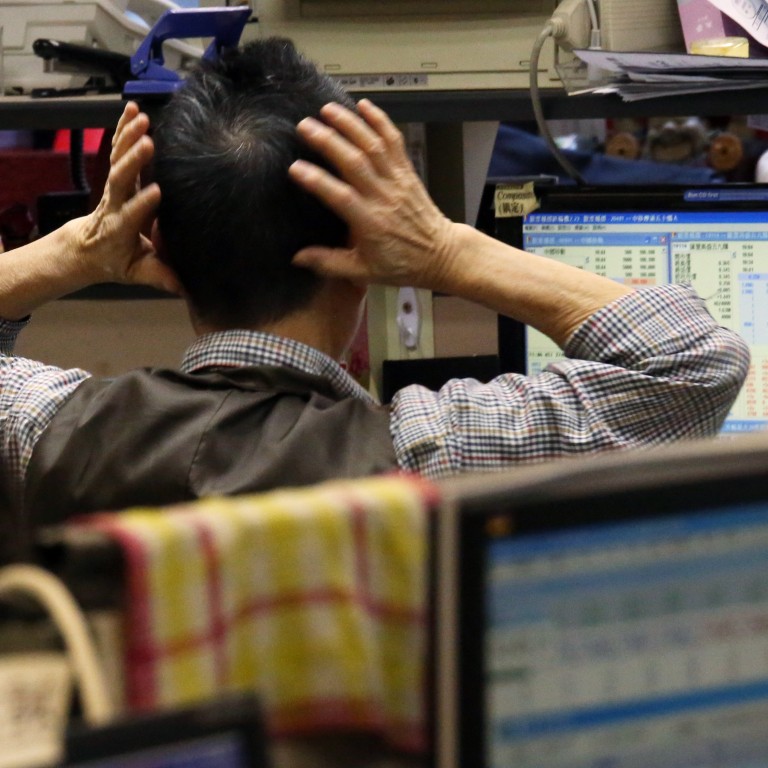
New | Fund managers bet they can get out before stock market bubble bursts
Bubbles are a bit like the weather: everyone complains but no one does anything about them.
That’s one interpretation of the most recent survey of fund managers by Bank of America Merrill Lynch, which found growing conviction that both global stocks and bonds are over-valued and that "equity bubbles" represent the biggest tail-risk they face. The proportion who think both stocks and bonds are overvalued, compared to those who don’t, is the biggest since at least 2003, when the data begins.
Survey respondents, who collectively manage nearly US$400 billion, even show a strong awareness of the factor most likely to bring overvaluation crashing down: 85 per cent believe the Federal Reserve will hike US interest rates this year.
And yet, despite having a reasonable handle on both where we are in markets and where we may well be going, evidence is extremely thin on the ground that fund managers are acting on their beliefs.
Since the survey was conducted, markets have only carried on in the same general direction they’ve been travelling in recent months: stock markets going up and bond yields going down.
Take Etsy, for example, as the online marketplace for handmade goods saw its stock price nearly double after last Thursday’s already headily valued initial public offering. At a market cap of about $3.5 billion, the company, which, natch, makes no profits, is trading on about a 32 price-to-sales ratio.
Or look at shares in China, if you have the stomach. Despite its economy coming off the boil, shares have been on a headlong rush higher in recent months. The Shanghai stock exchange has more or less doubled in a year, the trailing price-earnings ratio of the small-cap ChiNext index is approaching triple digits, well it is 90, and margin borrowing is up 30 per cent this year alone.
And that is just stocks, which fewer fund managers consider to be overvalued than bonds. In bond markets, Mexico, which has been in default for about a third of the last century, just sold a 100-year bond. Denominated in euros. You know, the currency which may soon be having a bit of a lineup change.
So while you can earn 27 per cent in annual interest on a 10-year Greek bond, the average yield on the entire German government bond universe just dropped below zero. I’ve heard of high-yield bond funds but have yet to get the marketing material for the ’Guaranteed Loss Held To Maturity Bond Fund.’
Michael Hartnett, chief investment strategist at BofA Merrill Lynch, has a pretty good handle on what’s going on. "April’s survey offers further proof that global investors are front-running global monetary policy," Hartnett said.
Front-running, just between us guys, means trading in anticipation of the actions of a counterparty, often a client. What investment managers are doing is betting that they will be smart enough to profit from the actions of a greater fool until such time as the fool wises up or switches tactics.
The difference between this market mania and the last couple is that the greater fool now isn’t some day-trading stock picker or even a house flipping, cash-out refinancing mogul, but global central banks. That’s the best kind of greater fool to have: one with a printing press.
Fund managers ’know’ the ECB is going to carry on buying euro zone debt just as they ’know’ the Federal Reserve will later this year start to hike. What they think is that they will get out in time. They figure that, unlike our day-trading or house-flipping friends, global central banks will actually tell us when they plan to stop backing the market.
And so maybe they will. And so maybe we will understand them when they do. And so maybe we will exit the building before the greater fool stops buying.
Still, making complex valuation assessments and then totally ignoring them in favour of second-guessing a cadre of bureaucrats is a heck of a way to make a living, much less add value for clients. You can’t help but think of Ben Bernanke, who this week made the transition fully, no longer a bureaucrat but instead a second-guesser employed by a hedge fund.
Remember too that money managers, with a few anomalies excepted, aren’t paid to stand back from bubbles, which admittedly are suspected far more often then they are popped.
Fund managers are paid to beat their benchmarks, and while the market is going up, it takes an unusual person to stay off the dance floor.

